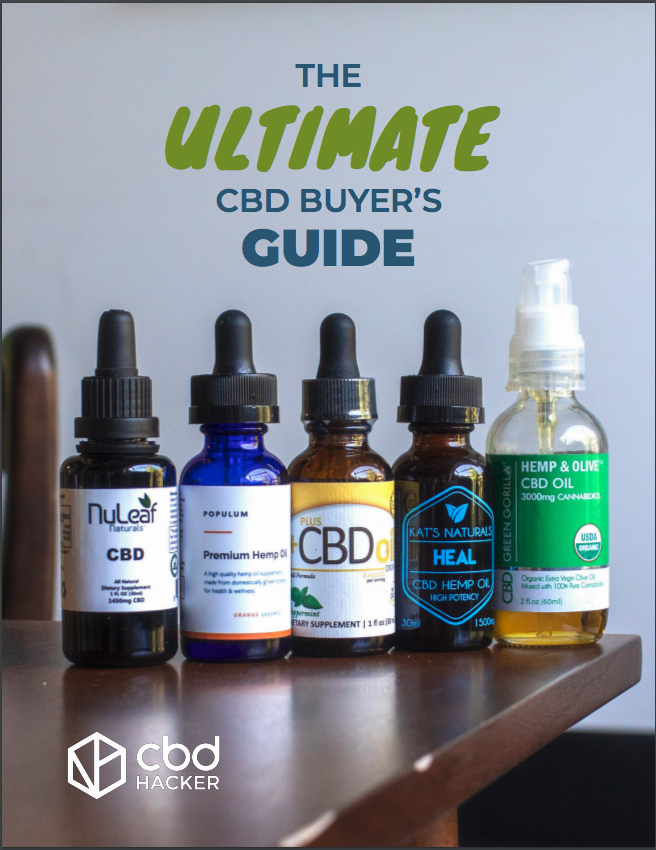Is CBD safe during pregnancy? A new study published this week suggests that pregnant women should avoid both CBD and THC.
The study, conducted by researchers at the University of North Carolina School of Medicine, studied the effects of a one-time exposure to cannabinoids (both CBD and THC) on pregnant mice.
Findings showed that in very early pregnancy, cannabinoids like CBD and THC can cause malformations in both the face and brain in a developing embryo, similar to those caused by fetal alcohol syndrome. When combined with alcohol, the likelihood of birth defects more than doubled.
This is the first research to show such a connection in mammals. According to the study’s senior author, Dr. Scott Parnell:
“It is concerning how little we know about the use of marijuana, its cannabinoids, and products like CBD oil during pregnancy. We know that there is no safe period to drink alcohol during a pregnancy, and I think this research shows the same is likely true of marijuana use.”
The study found that of all the cannabinoids tested, CBD was the least teratogenic (damaging to the fetus), but at the highest dose (17 mg/ kilo) it did cause eye defects and philtrum deficiency (a facial defect).
With the results of these one-time exposures, researchers are now planning to test smaller, multiple exposures throughout a pregnancy, which will better reflect real-life usage in human pregnancy.
This Week’s Top CBD Deals
NuLeaf Naturals
Discount: 20%
Code: cbdhacker
Pure Hemp Botanicals
Discount: 20%
Code: cbdhacker20
4 Corners Cannabis
Discount: 20%
Code: Hacker20
Populum
Discount: 15%
Code: Hacker15
Mission Farms
Discount: 20%
Code: cbdhacker
Joy Organics
Discount: 15%
Code: cbdhacker
Law enforcement’s difficulty with differentiating between hemp and marijuana was front and center in the news this week. On Tuesday, an NYPD social media post boasted that officers of the 75th Precinct had confiscated 106 pounds of marijuana “destined for our city streets.”
As it turns out, the “marijuana” they seized was actually legally grown hemp, certified to contain only .14% THC, which is well below the legal limit for hemp. Documentation confirming testing results was, according to the owners of the shipment, included in every box of the cargo.
Following the seizure, law enforcement officers called the owners of GreenAngels CBD to come pick up their product, then arrested the owner, Ronen Levy, when he arrived.
A Brooklyn criminal judge later released him without bail, but the NYPD is continuing to hold on to the hemp in order to conduct their own testing.
And in a twist on the previous story, authorities in California seized ten million marijuana plants which they say were disguised as hemp. Growing on 459 acres, the crop, which has been bulldozed and destroyed, was estimated to have a street value of more than $1 billion.
While the details seem a bit murky at present, a local hemp entrepreneur was told by law enforcement that some of the fields being destroyed were under contract by a local hemp researcher who had failed to register some local acreage.
Upon testing, samples came up “hot,” meaning they tested above the legal limit of 0.3% THC. In some cases, up to 6% THC.
No arrests were made, but the Kern County Sherriff’s Office stated that they are conducting a “pretty big investigation.”
Stay in the know
[caldera_form id=”CF5b05eba6de634″]
Industry insiders are beginning to weigh in on the new USDA hemp regulations that were published last week. And in some states at least, farmers are pretty unhappy about how the rules deal with THC.
In states like Vermont where farmers can cultivate hemp with THC concentrations under 1%, there is deep concern about how the tighter regulations will impact their businesses. The new rules require farmers to destroy crops that are tested as having more than 0.3% THC.
According to Cary Giguere, an official with the Vermont Agency of Agriculture, Food and Markets, Vermont’s more liberal rules offer leniency to farmers since the level of THC can be mitigated through processing. He added that the bill seems to have been written with law enforcement in mind, rather than farmers.
In what is now becoming a predictable refrain, Kristi Noem, governor of South Dakota, reiterated her position this week on hemp.
In a statement released Tuesday, the governor stated that “I will continue to make the case that legalizing hemp will legalize marijuana by default.”
The statement does acknowledge that the newly published USDA guidelines do require states to allow for interstate transport of hemp, but Noem’s team is “working to ensure we have proper procedures in place so this doesn’t become something that weakens our drug laws.”
More From CBD Hacker This Week
Some people say that CBD oil can be used to treat cancer. But does the scientific research back up these claims? Join us for a deep dive into what we know so far.
On Wednesday, two New York state departments filed an amendment that would allow medical marijuana businesses to provide hemp-derived CBD to patients.
The Departments of Health and Agriculture & Markets introduced the measure in order to enhance the state’s medical cannabis program and to “help to reduce registered organizations’ manufacturing costs, thereby reducing costs to patients.”
The amendment was published in the New York State Register and will go through a 60-day comment period, during which interested parties can weigh in on the new rule.
If you happen to be in Colorado and occasionally find yourself needing to pick up some CBD on the go, you’re in luck. Select 7-Eleven locations in the state are introducing CBD-dispensing robots which will allow customers to purchase CBD products via a touchscreen in under three minutes.
So what differentiates this “robot” from other run-of-the-mill vending machines? According to greenbox Robotics, the company that produces the machines, the robots actively monitor the temperature and shelf life of the products — and send feedback to the company about purchasing trends.
And an added bonus for 7-Eleven stores? Keeping high-priced CBD products inside the machine will help prevent “shrinkage,” also known as shoplifting.





